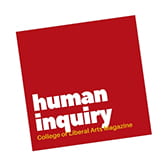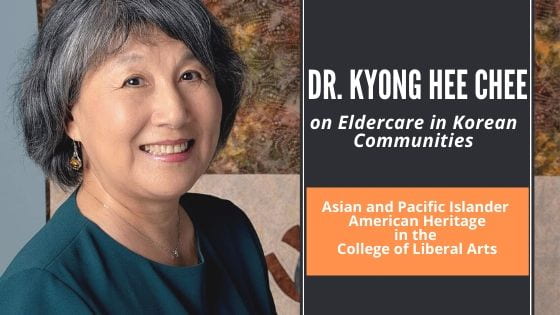How do cultural and family dynamics impact eldercare in Korean communities?
Dr. Kyong Hee Chee, associate professor in the Department of Sociology, and her colleague, Dr. Hyun Ji Lee, answered this question in “Without Feeling Guilty”: Filial Piety and Eldercare in Twenty-First-Century Korea,” a book chapter to be published this summer in the collection, Beyond Filial Piety: Rethinking Aging and Eldercare in Contemporary East Asian Societies (Berghahn Publishers).
Filial piety is the virtue of respecting one’s parents, elders, and ancestors. Chee and Lee report that women take on many filial and familial responsibilities. “Within a Confucian culture built on patriarchy and a gendered division of labor, women have typically performed more familial roles than men do, disproportionately serving as primary caregivers of older family members as well as young children.”
The chapter revealed that filial piety in Korean communities has changed over time to include not only a focus on family wellbeing but also a focus on individual wellbeing. “The notion of filial piety has changed over the years in Korea, beginning with the expectation of support and care to parents through coresidence with eldest sons and their wives, moving to mutual respect for the individuality of aging parents and their adult children.”
For example, before, many Korean families thought that living with their elderly family members would be best. Now, many believe that it would be good to allow elderly family members to live on their own with assistance from their family, community, and, to a lesser extent, the government. “Most contemporary Koreans do not tend to believe that living together with parents while supporting and caring for them is the ideal form of eldercare. A small proportion of Koreans even state that government support and/or care for elders is the ideal.”
New generations are seeking external help without remorse, which also shows how their definition of filial piety is changing. They “increasingly opt for using institutional care with government support for eldercare, without feeling guilty.” For new generations, honoring your parents can include receiving help from outside sources.
Economics may also influence changes in attitudes about filial piety. The community must balance respect for elders with financial pressures. “On the one hand, Koreans continue to believe that at some level filial piety and familial eldercare are a social good. On the other hand, they are burdened with caregiving duties in a modern capitalist society that places little value on familial caregiving.”
Overall, Chee and Lee propose that collaborations between family, community, and the government could help improve eldercare. “Good eldercare is possible when the government and adult children share care responsibilities.”

